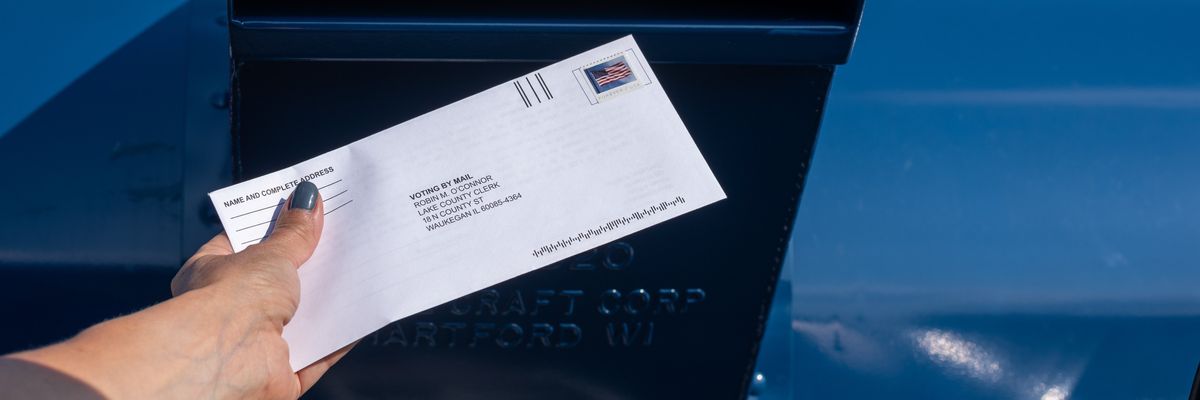Make Your Voice Heard: The Power of National Voter Registration Day

It’s National Voter Registration Day—an opportunity for our community to step forward, get informed, and ensure we're all set to vote. Voting is one of the most powerful tools we have to influence change, and if that weren’t true, people who don’t want to see that change wouldn’t be doing everything in their power to make it so hard to vote. It’s pretty logical to conclude that if someone is trying to make it harder for some people to vote than others, then they must be pretty afraid of what the power of the vote can do.
Even if it’s now harder to get registered to vote in your state, that’s all the more reason to do it.
What’s happening on September 19th?
On National Voter Registration Day, you’ll see a number of national non-partisan organizations mobilizing to encourage people 18 and over to register to vote or to update their registration if any of their information has changed. The NALEO Educational Fund is one of those organizations rallying the community and boosting voter registration. They're putting together a series of events across key cities with voter registration drives to guide potential voters through the registration process or assist in updating their details.
Why is it happening?
The essence of democracy thrives on participation. The National Association of Latino Elected and Appointed Officials (NALEO) Educational Fund recognizes the vital role that the Latino community plays in shaping the future of the U.S., and the push for National Voter Registration Day is rooted in the drive to ensure every voice is heard. Historically, certain communities, including Latinos, have always faced extra barriers to full civic participation.
By facilitating voter registration events, offering bilingual resources, and holding educational conferences, NALEO aims to bridge any gaps in knowledge or access. This initiative isn't just about numbers; it's about empowering individuals, celebrating our shared democratic values, and reinforcing the truth that every vote, every voice, has power and significance in the American political system.
I have questions about voting; where can I get answers?
NALEO has set up a ¡Ve y Vota! hotline. It's bilingual (yes, en español too) and will run from 8:00 a.m. ET to 8:00 p.m. ET on the day. Whether you're wondering how to register, where to vote, or even the requirements needed for voting, just dial 888-VE-Y-VOTA (888-839-8682), and they'll guide you.
Any events near me?
If you live in these major cities, yes. NALEO is hosting voter registration drives in Los Angeles, Houston, Charlotte, and New York City. So if you're in any of these cities, keep an eye out and get involved.
You can also find more information and other events at the official National Voter Registration Day website
Can I help or join?
There are always ways to help. NALEO is expanding its network and is on the lookout for community partners to help make voter registration smooth and accessible for everyone. If you're interested or know any organization that might be, it's a great time to team up. Your local registry or voting office always has information on how to volunteer as an individual.
Quick Deets:
- Event: National Voter Registration Day (NVRD)
- Date: Tuesday, September 19, 2023
- Hotline: ¡Ve y Vota! - 888-839-8682
- Voter Drives: Los Angeles, Houston, Charlotte, and New York City
Voting isn't just a right; it's a powerful tool that reflects our collective voice, our values, and our dreams for the future. Every time we cast our vote, we're not only shaping the direction of the nation but also honoring the sacrifices of our ancestors and ensuring a brighter path for the generations to come. It's more than just ticking a box; it's our way of saying, "Estamos aquí, and we matter." So whether you're a first-generation immigrant or have deep-rooted family ties here, participating in the voting process is a celebration of our identity, our stories, and our place in this country.






